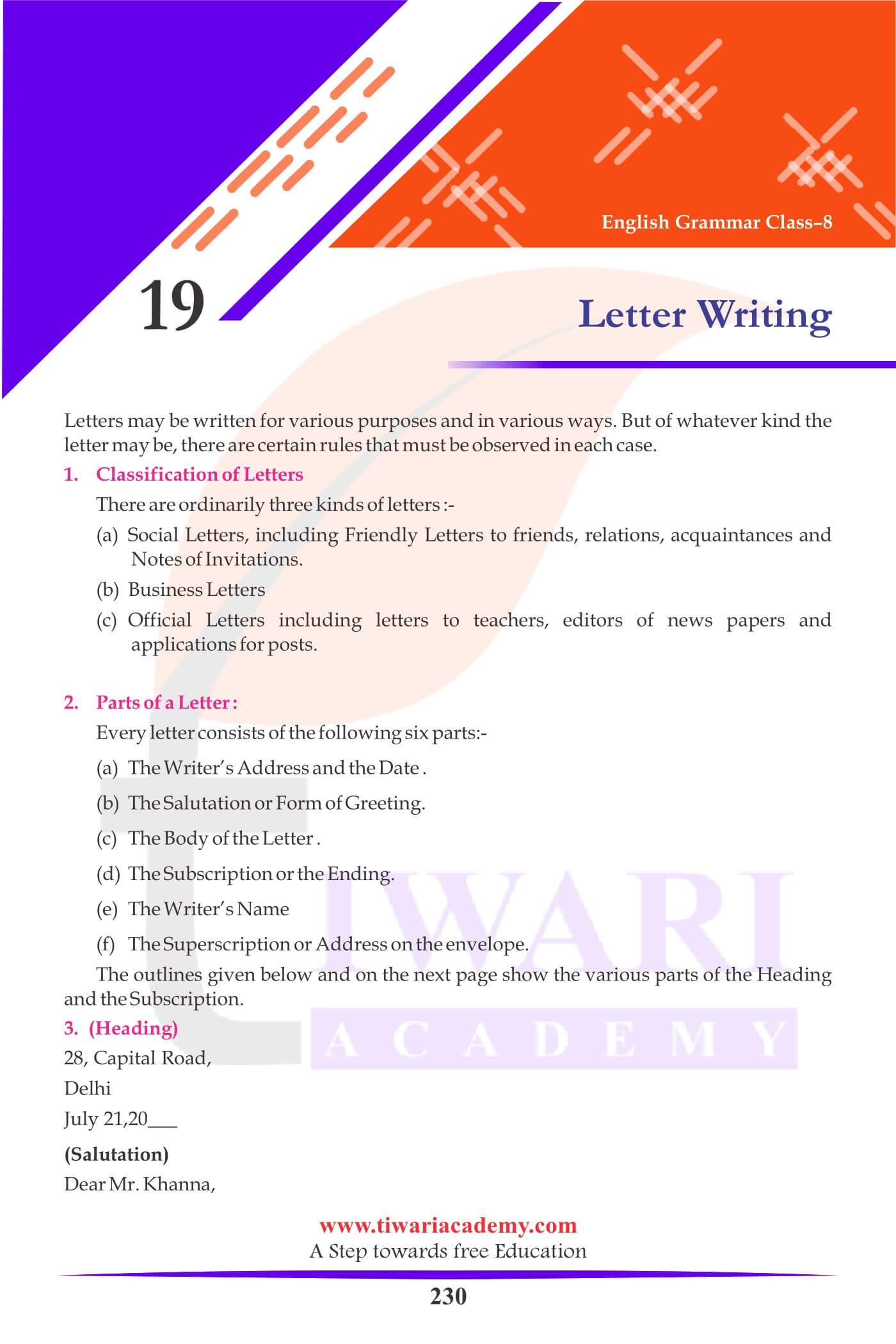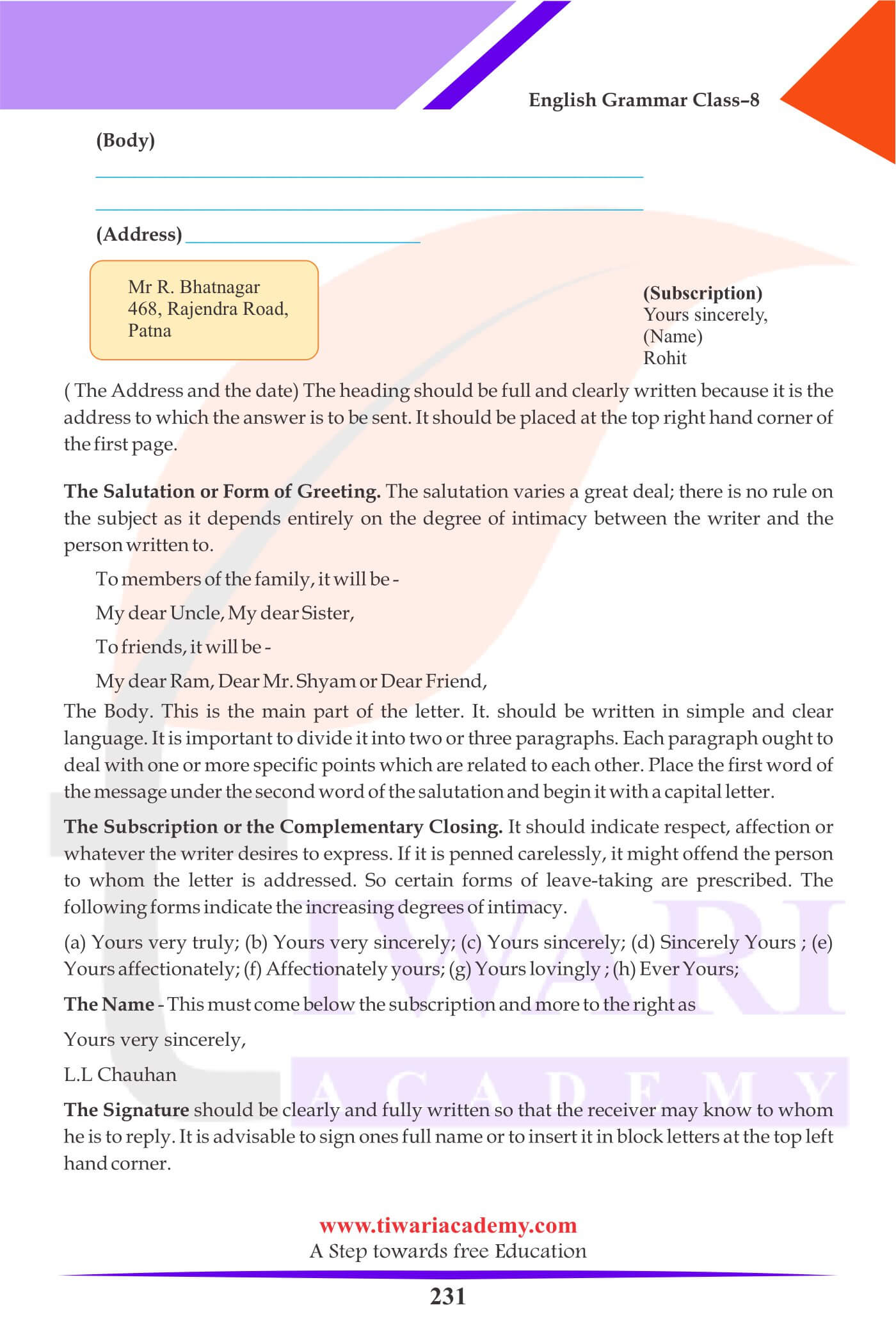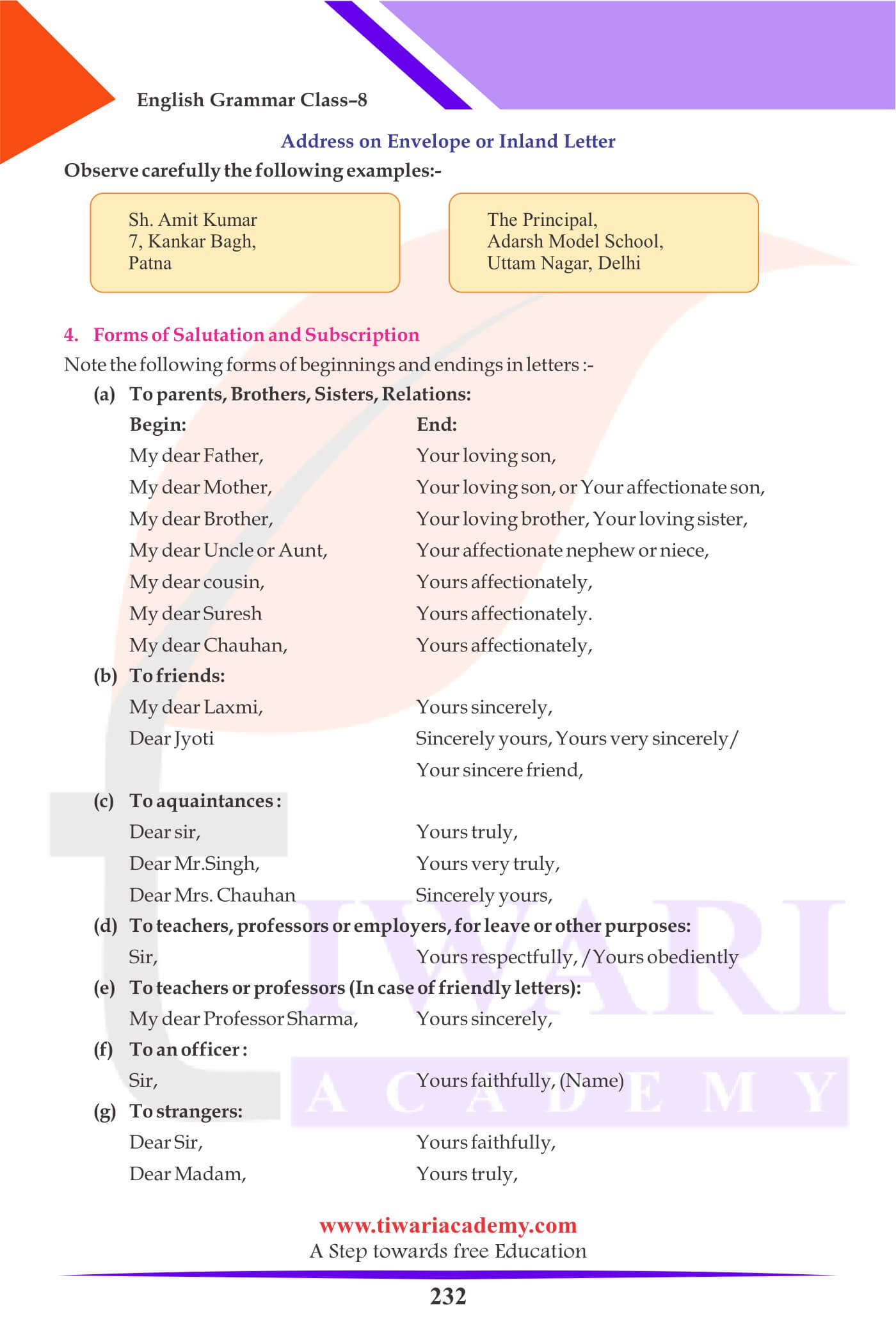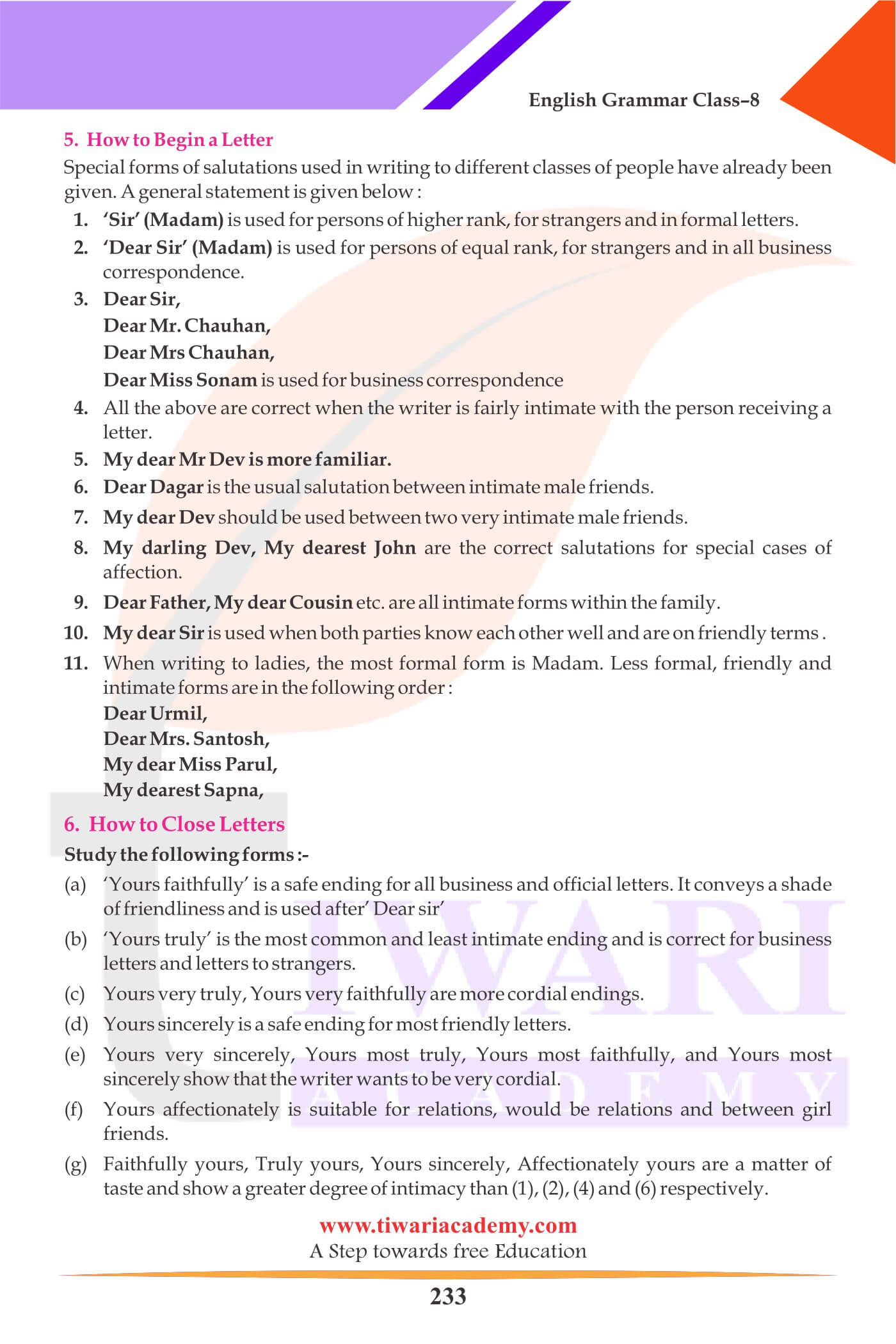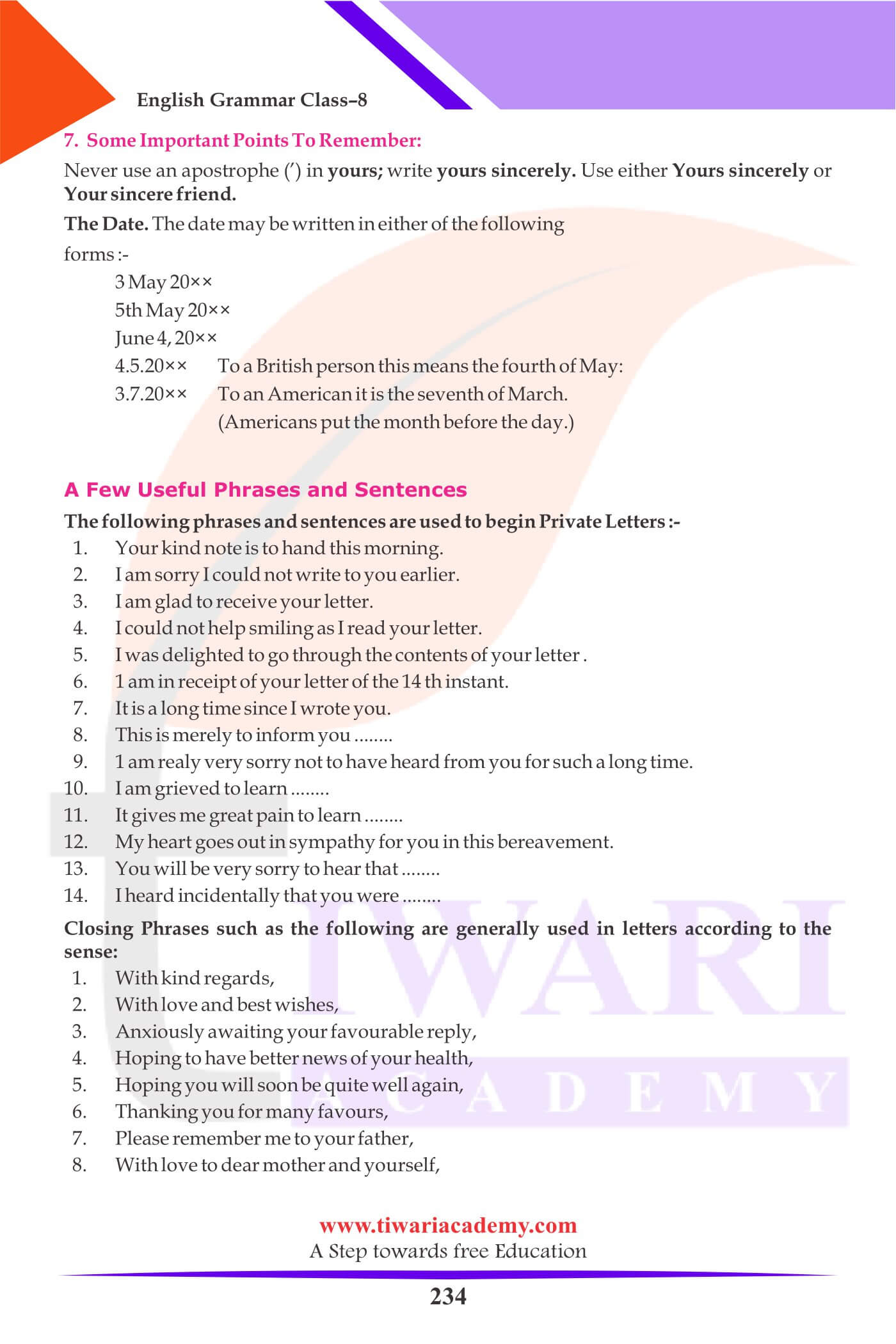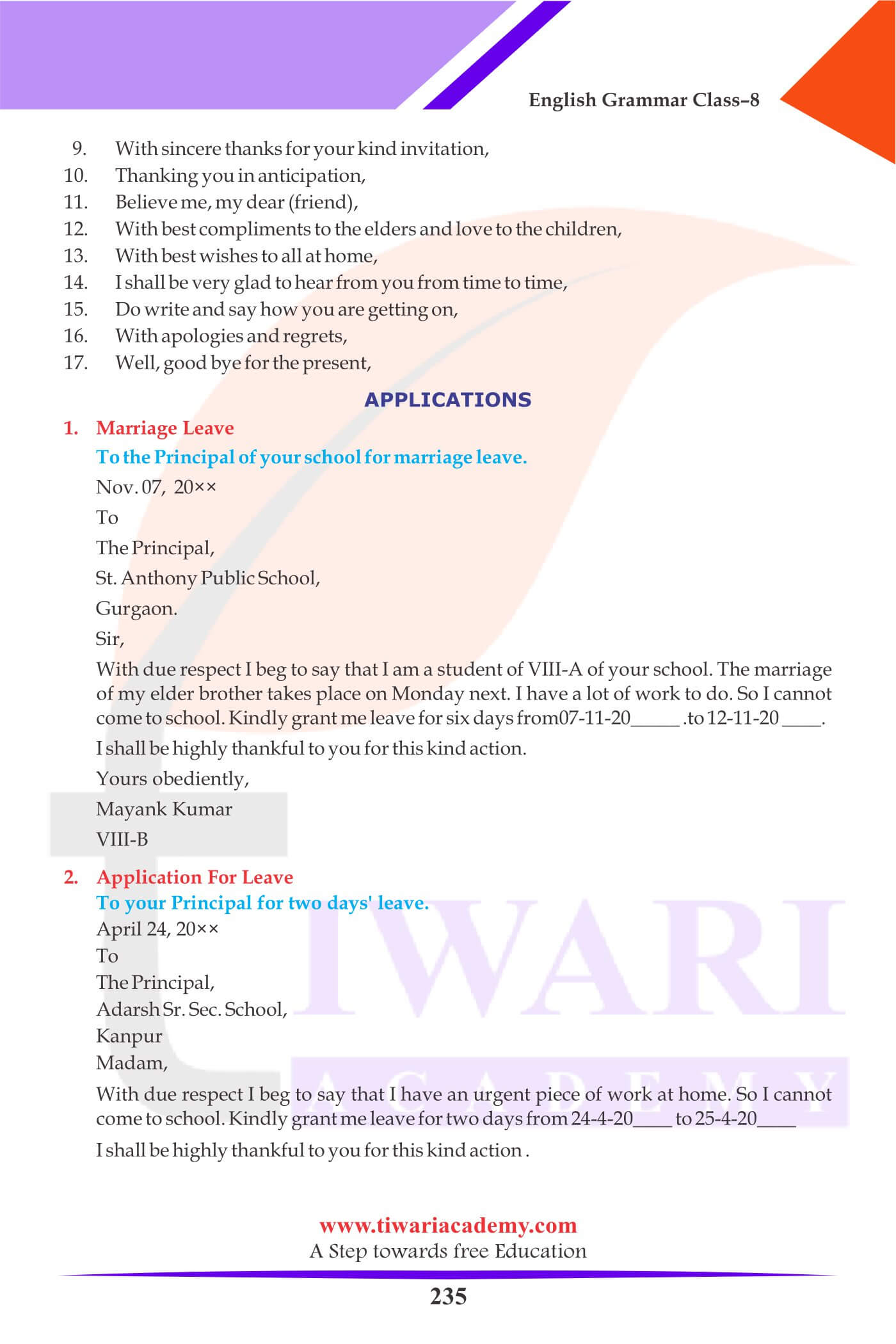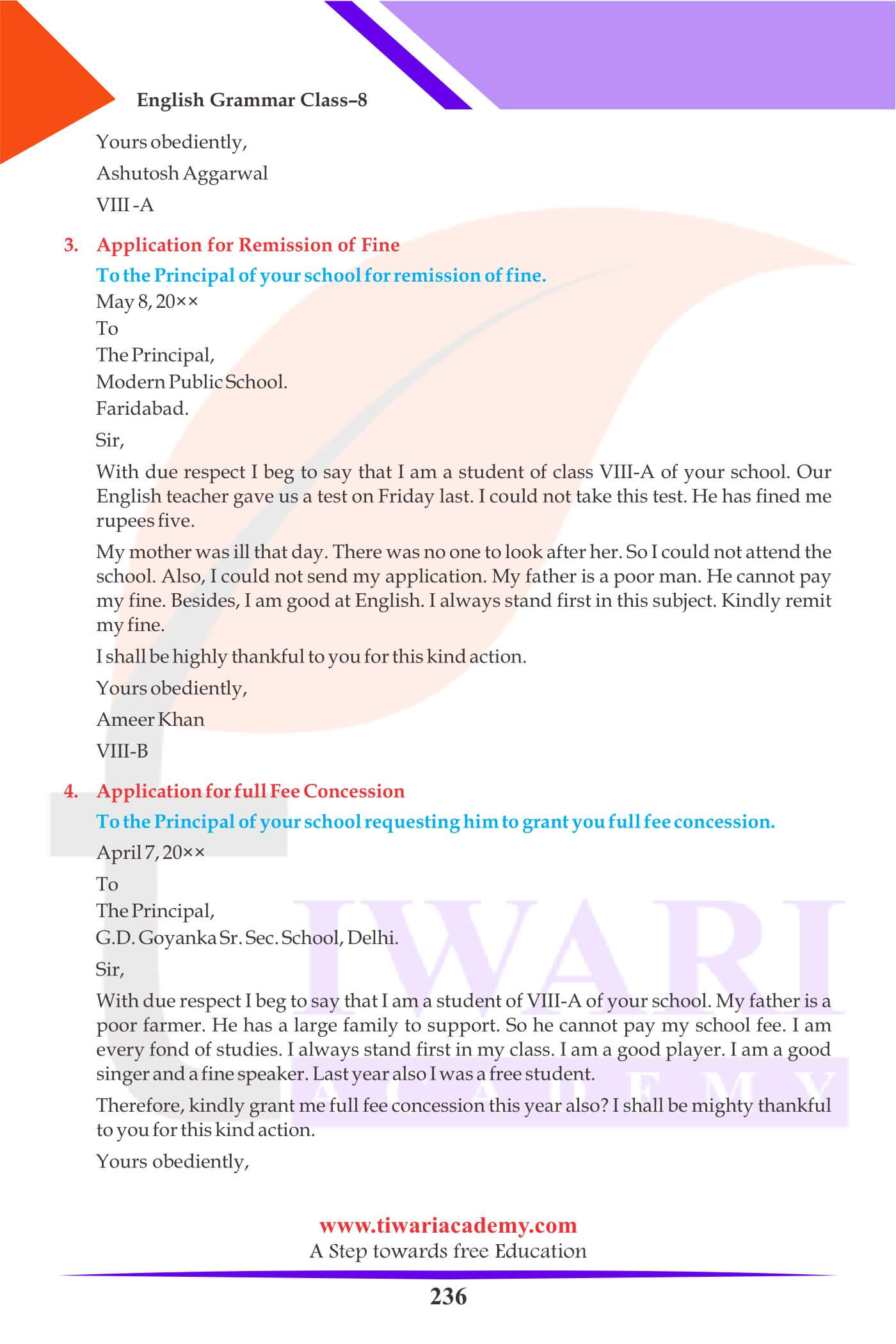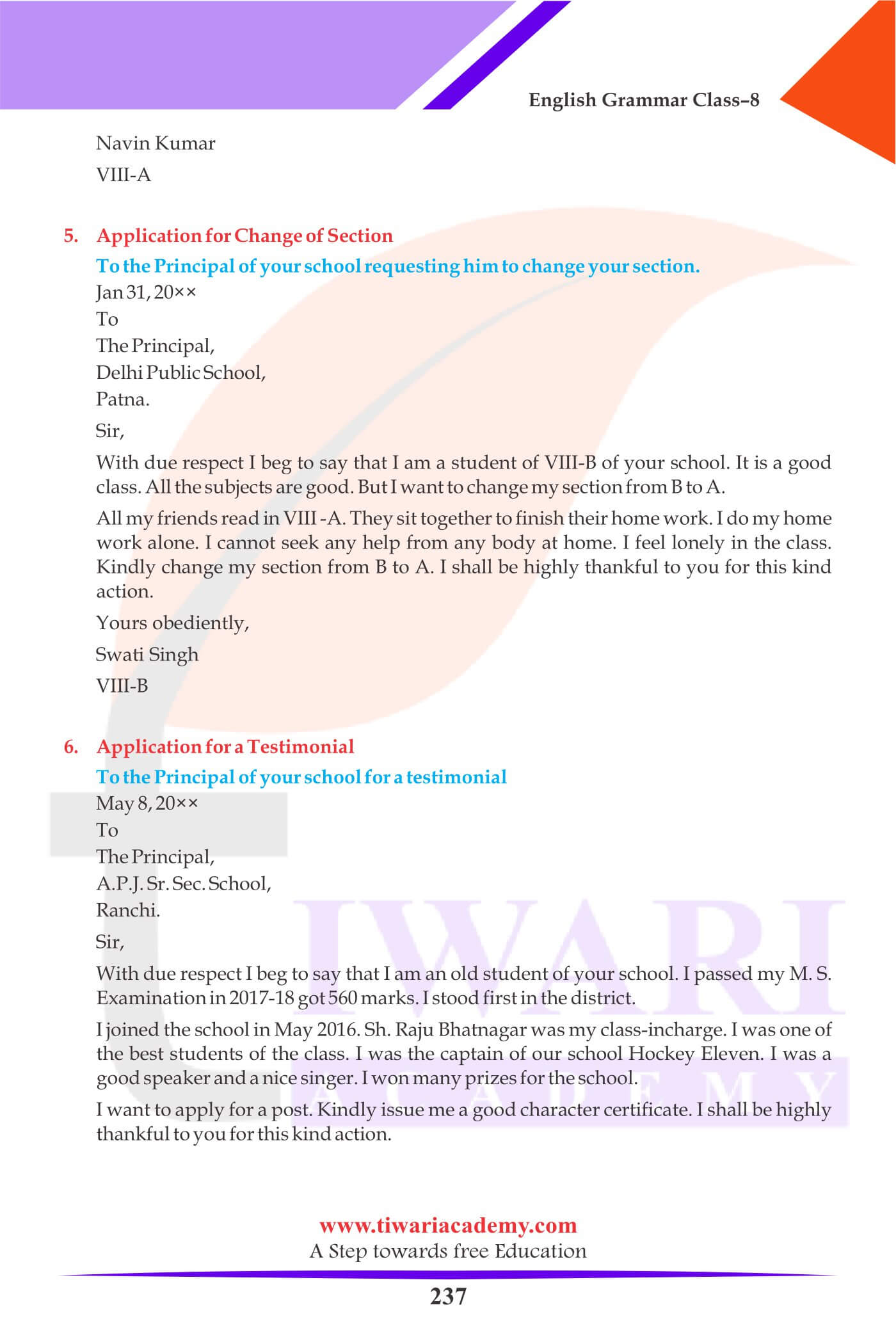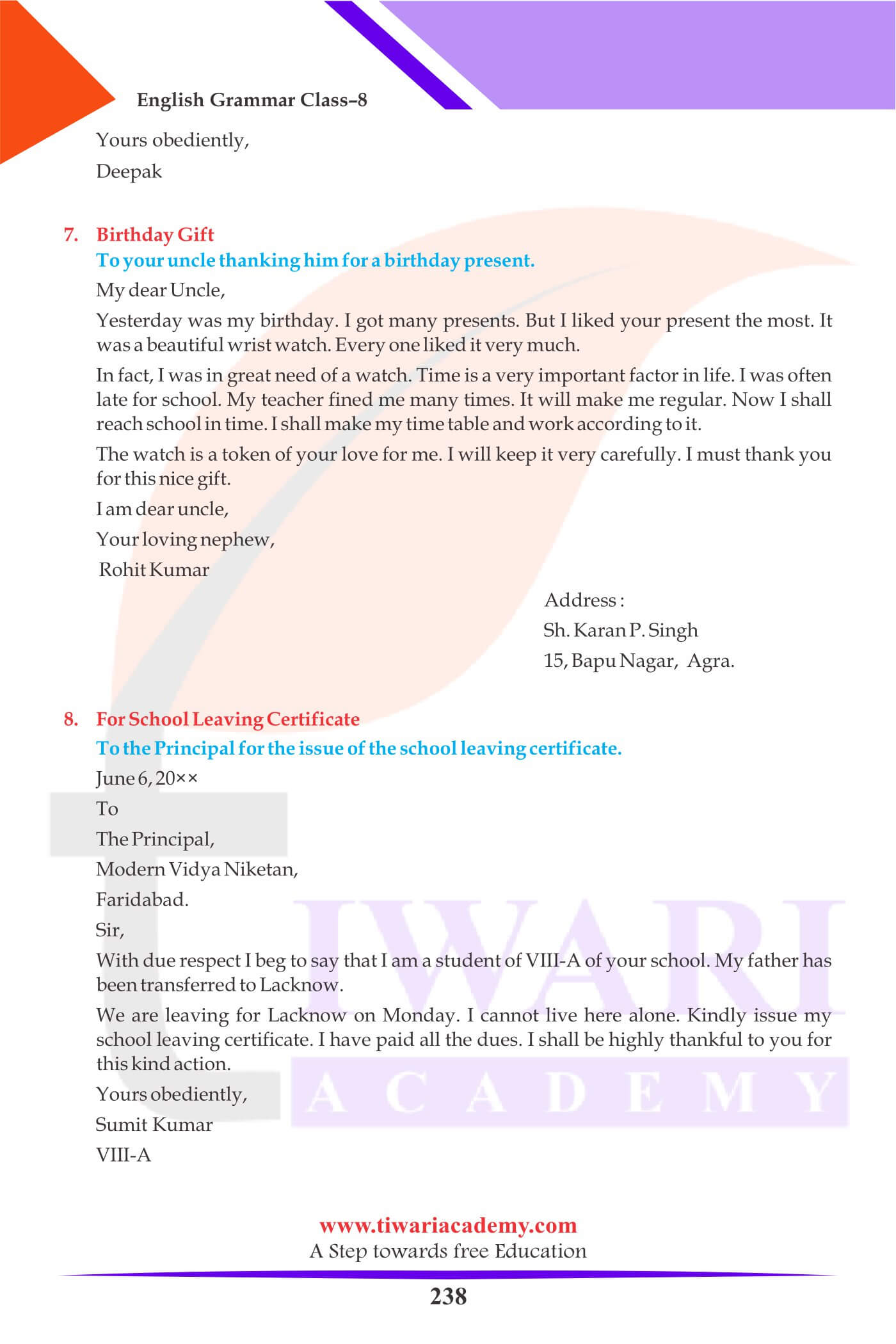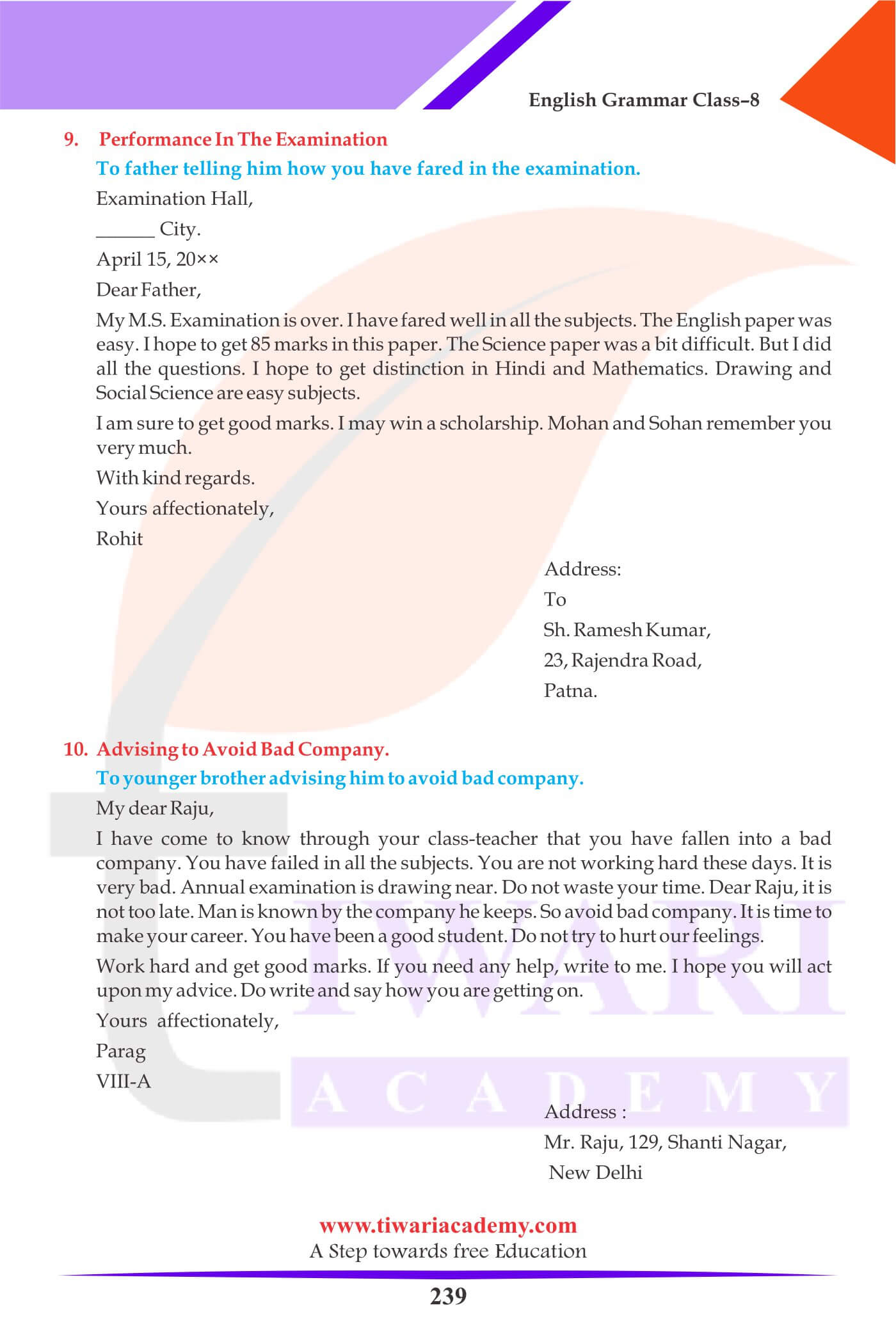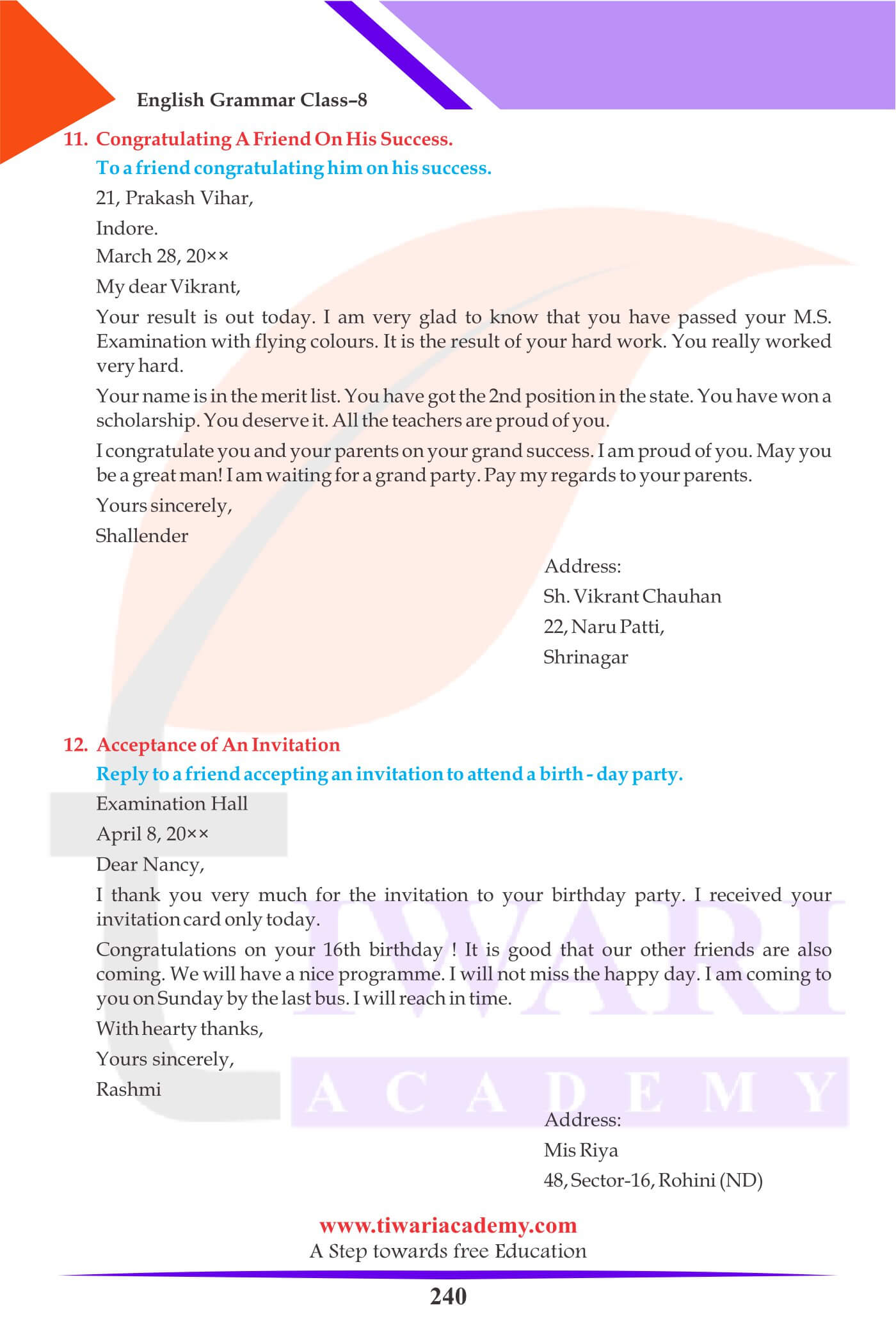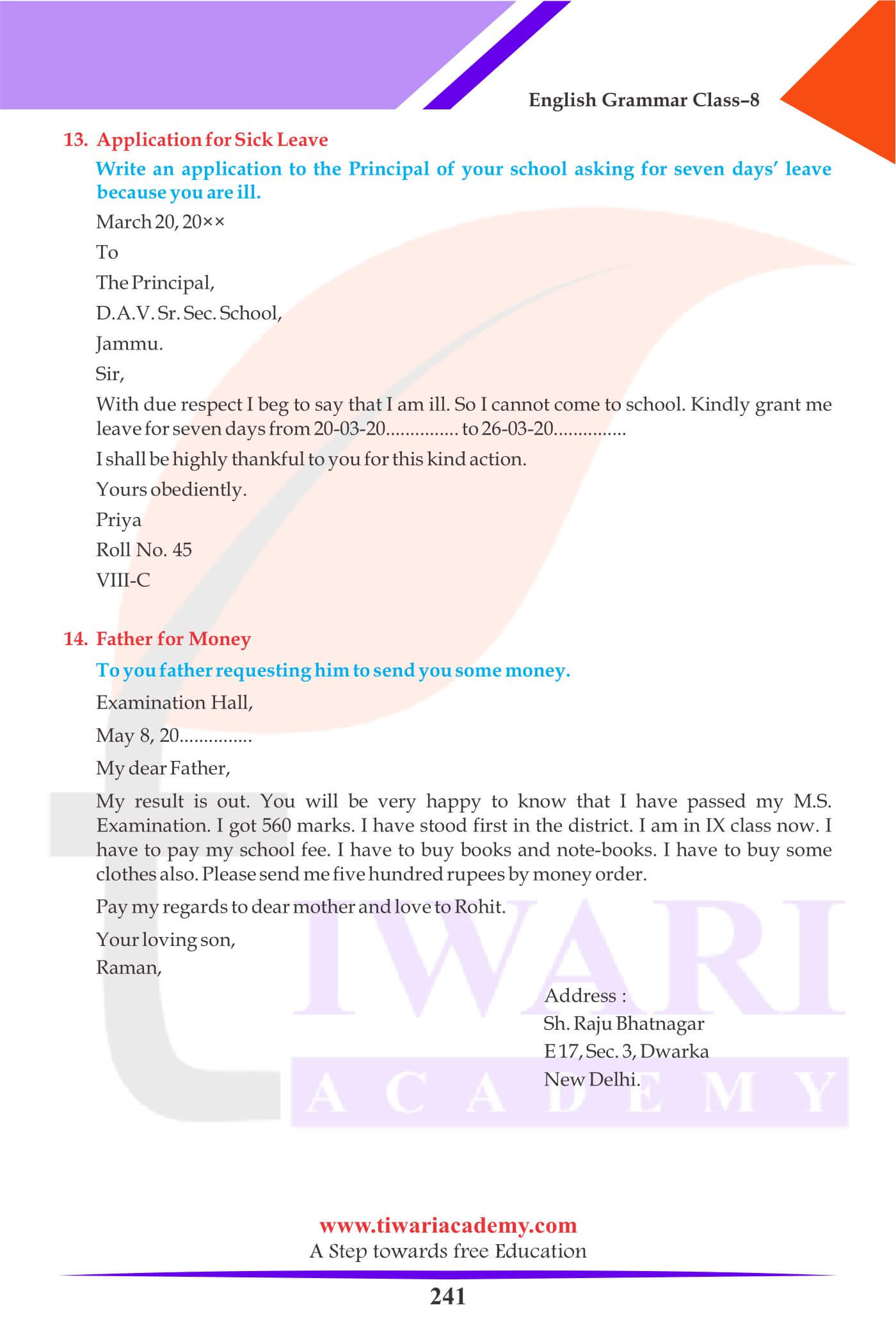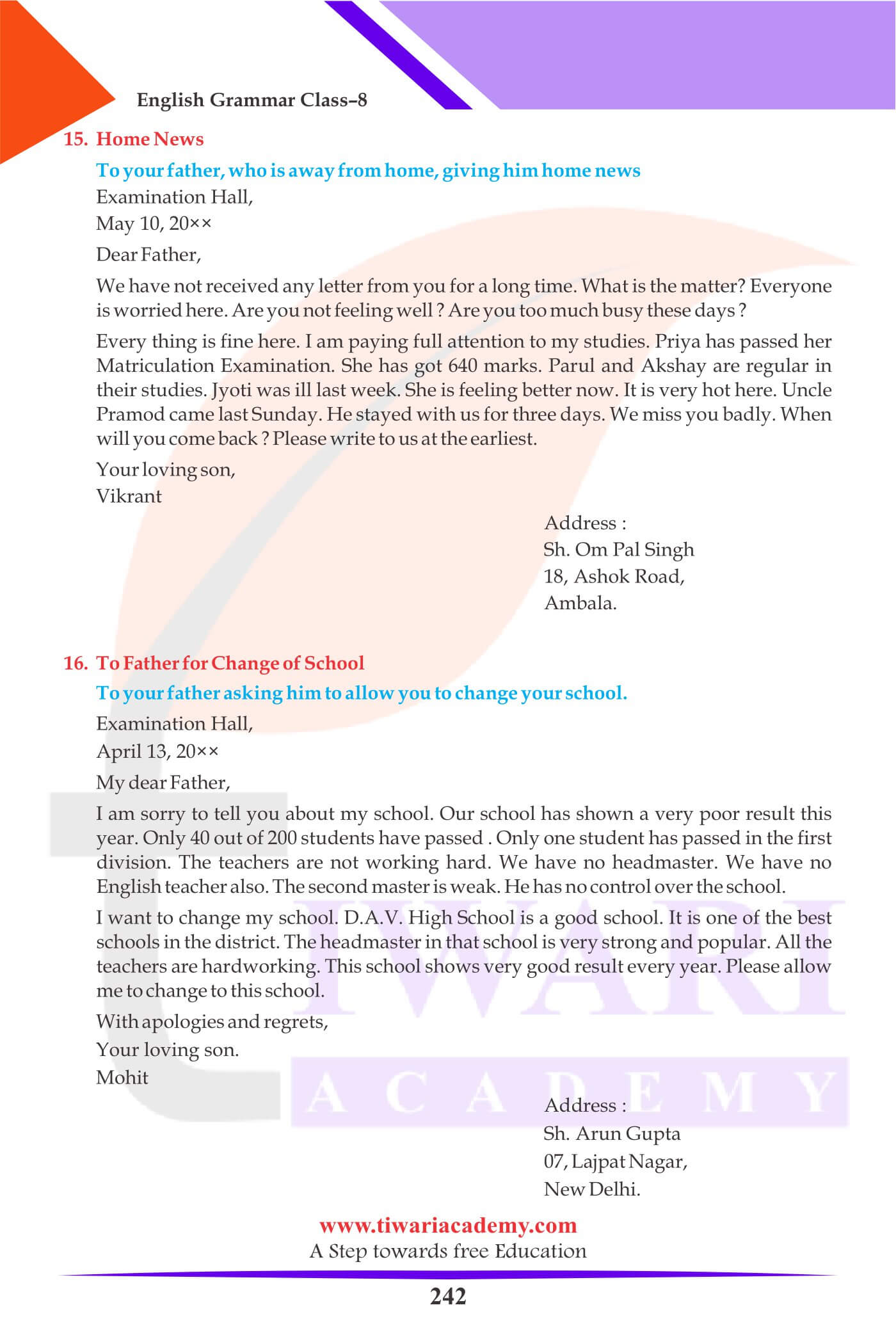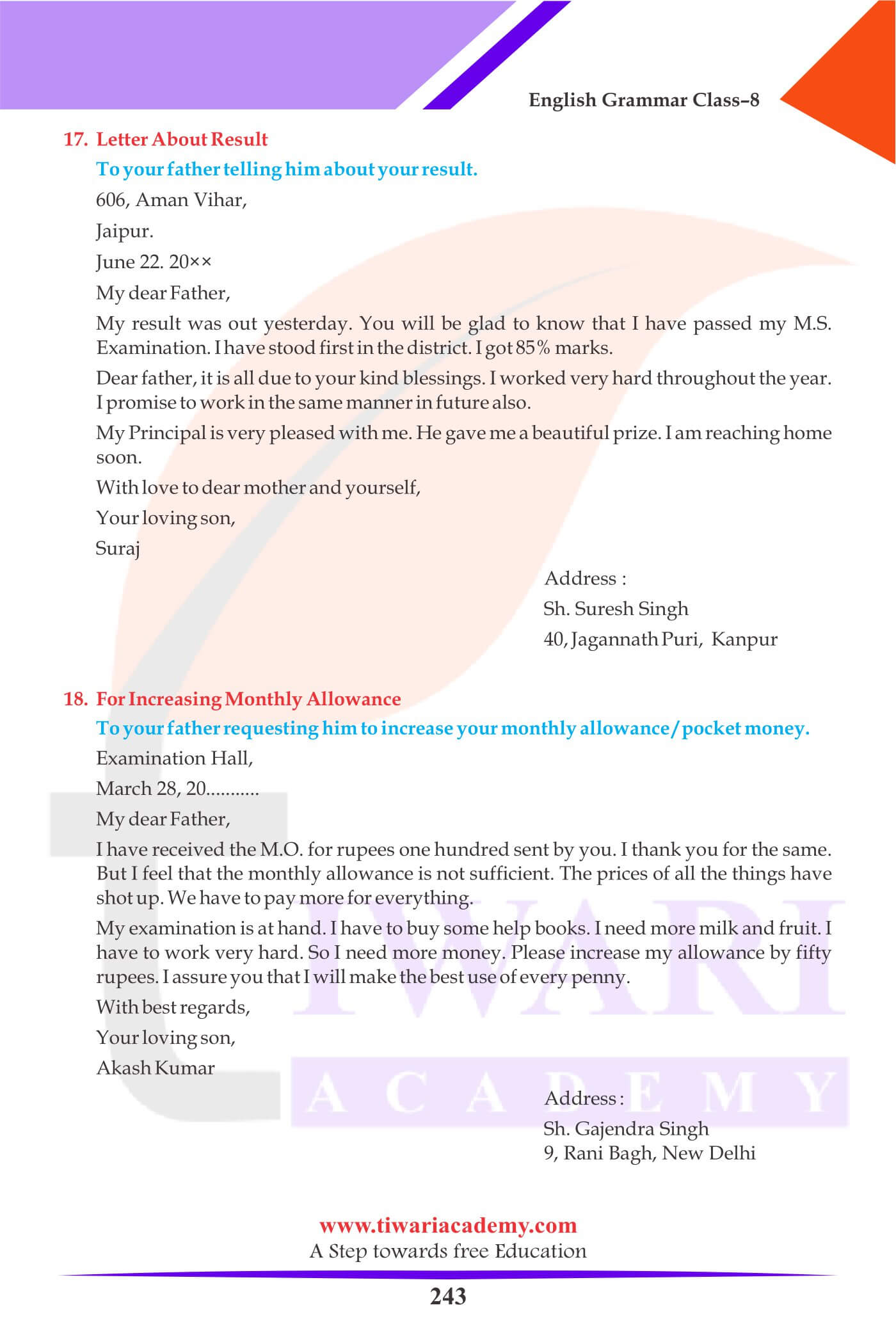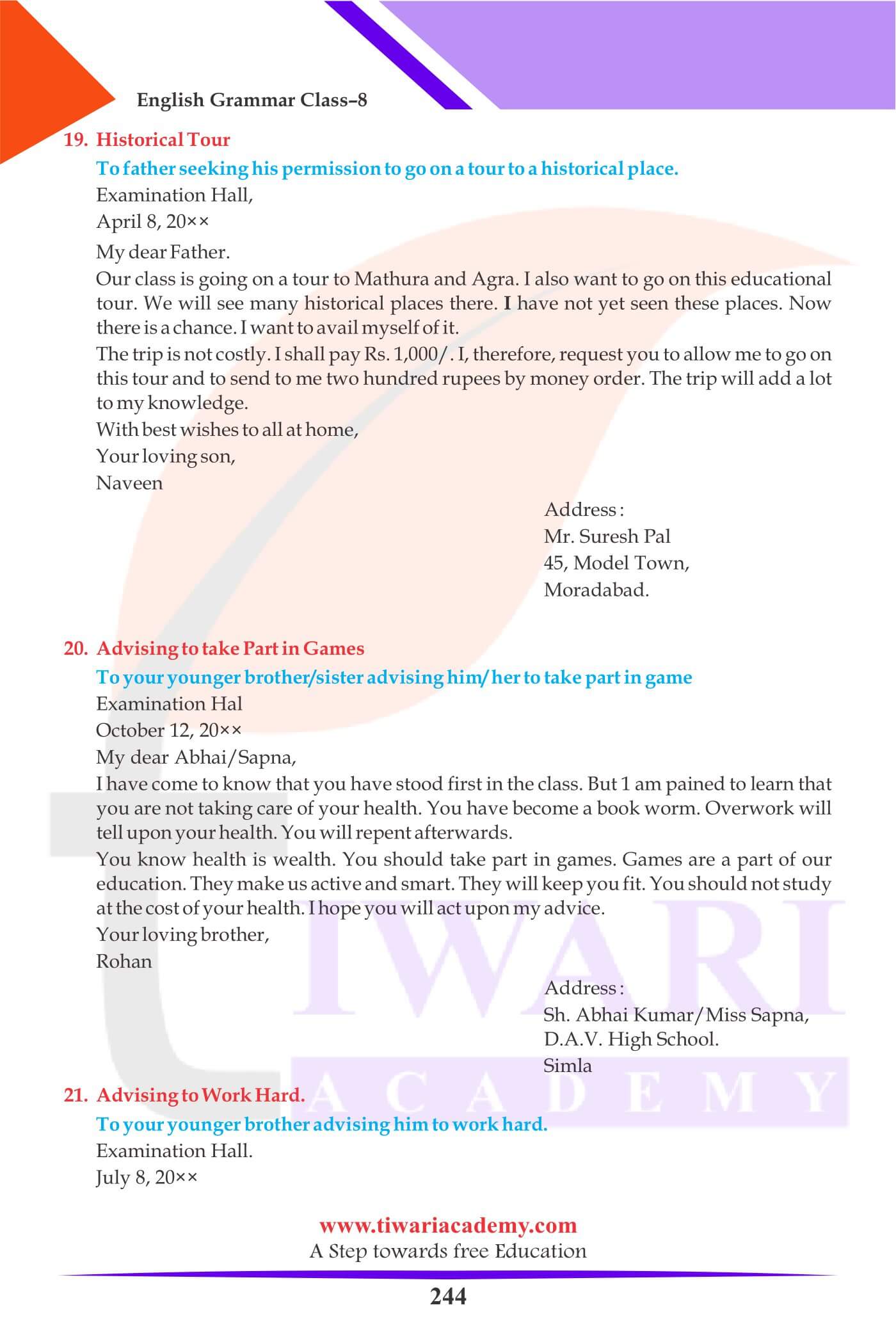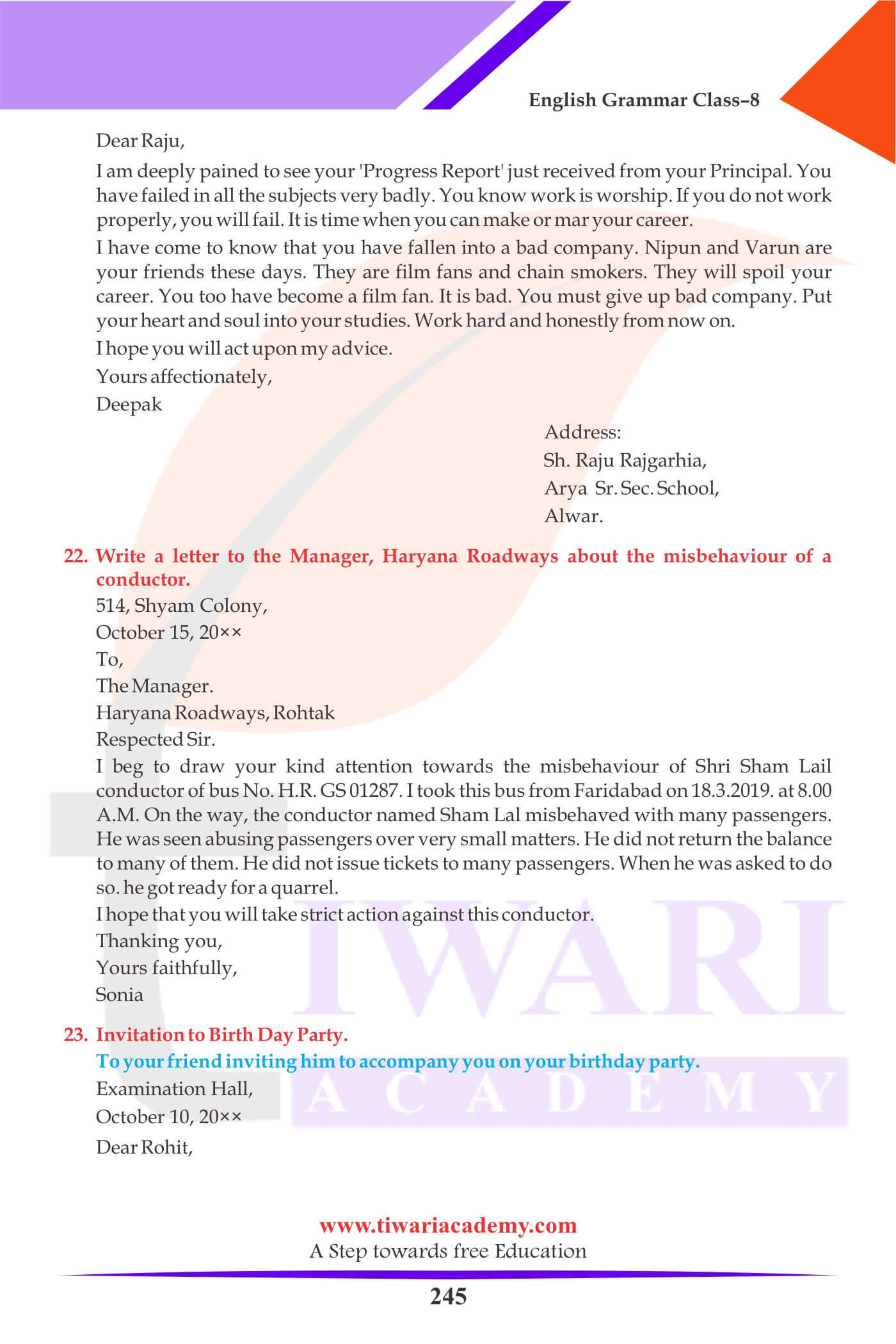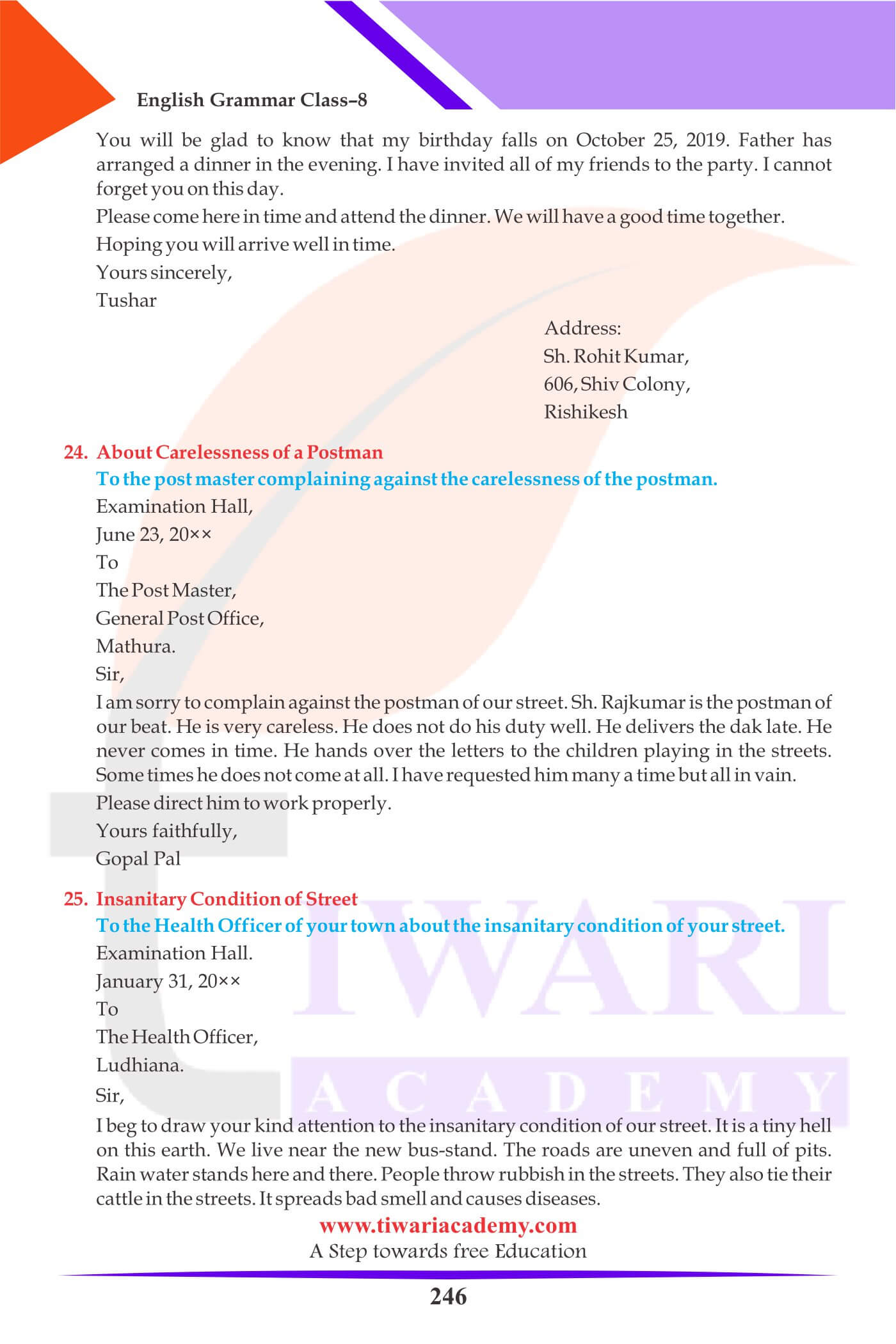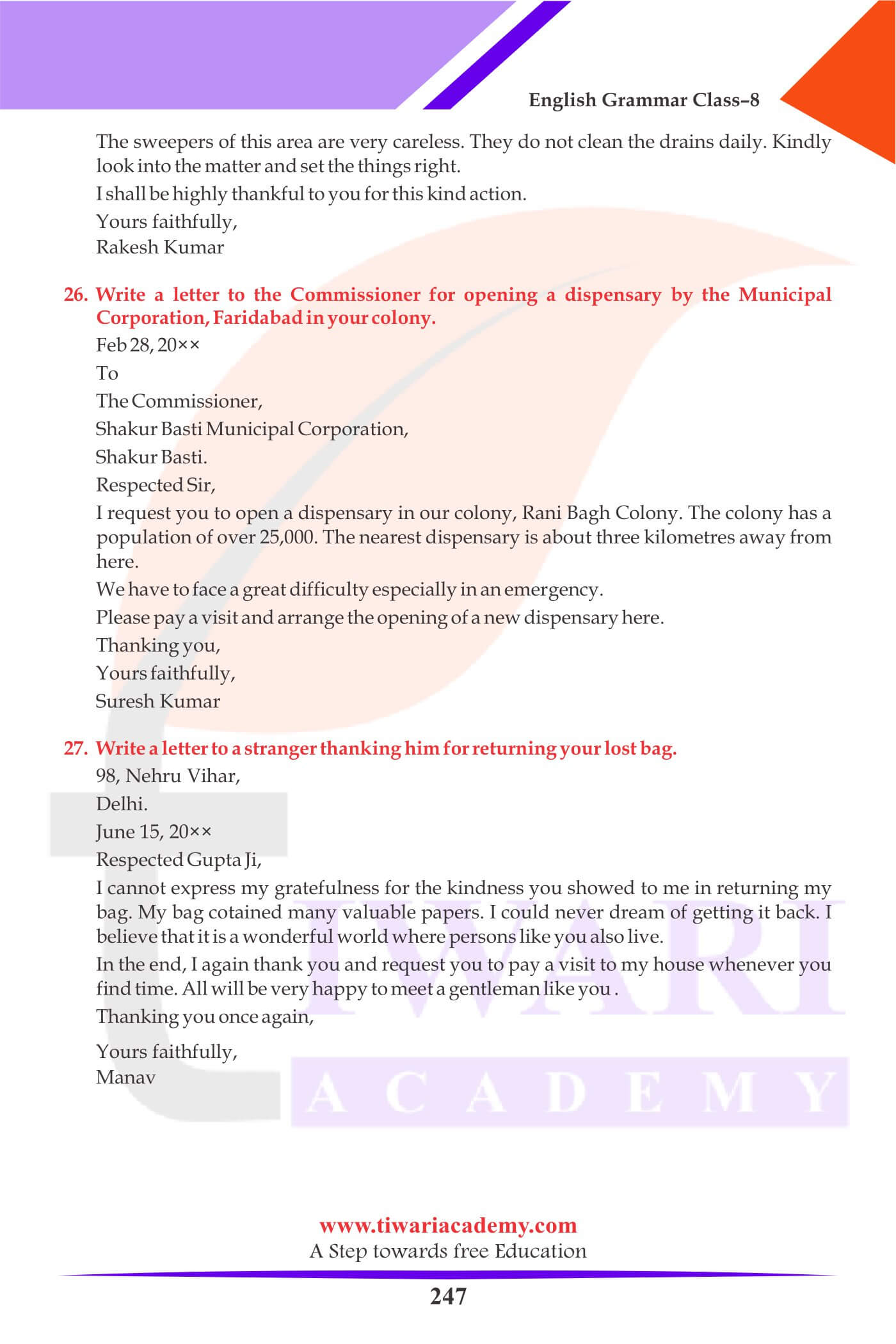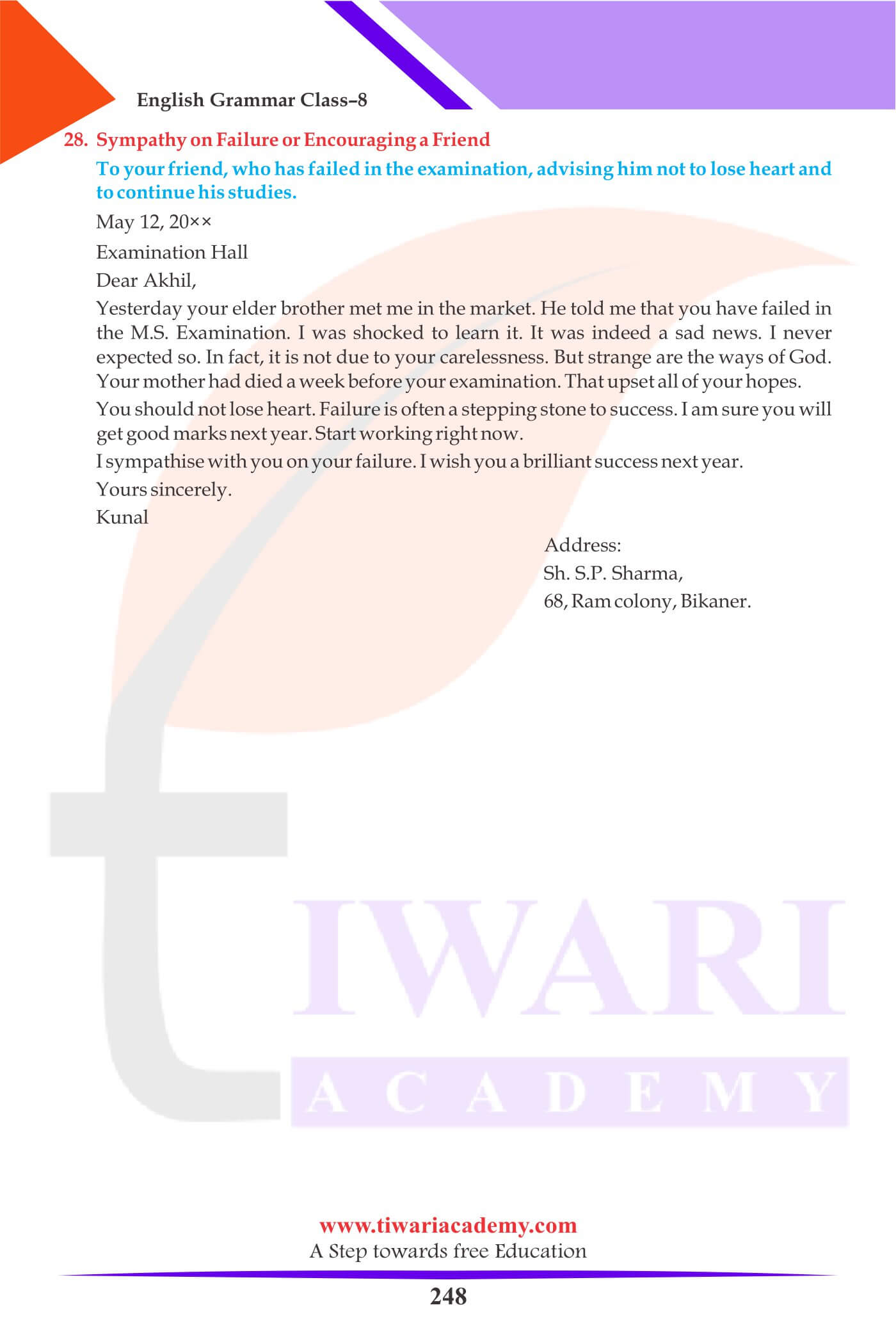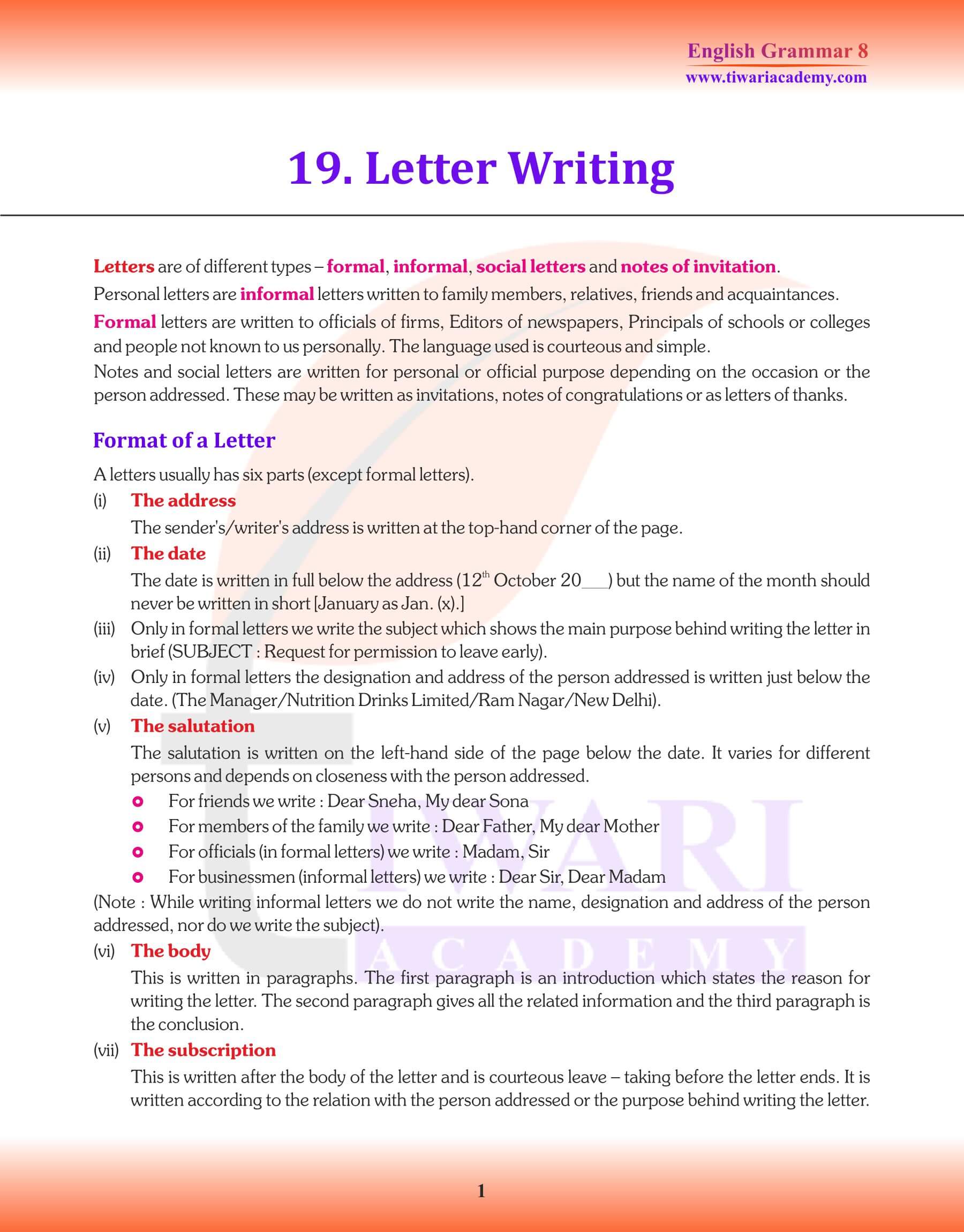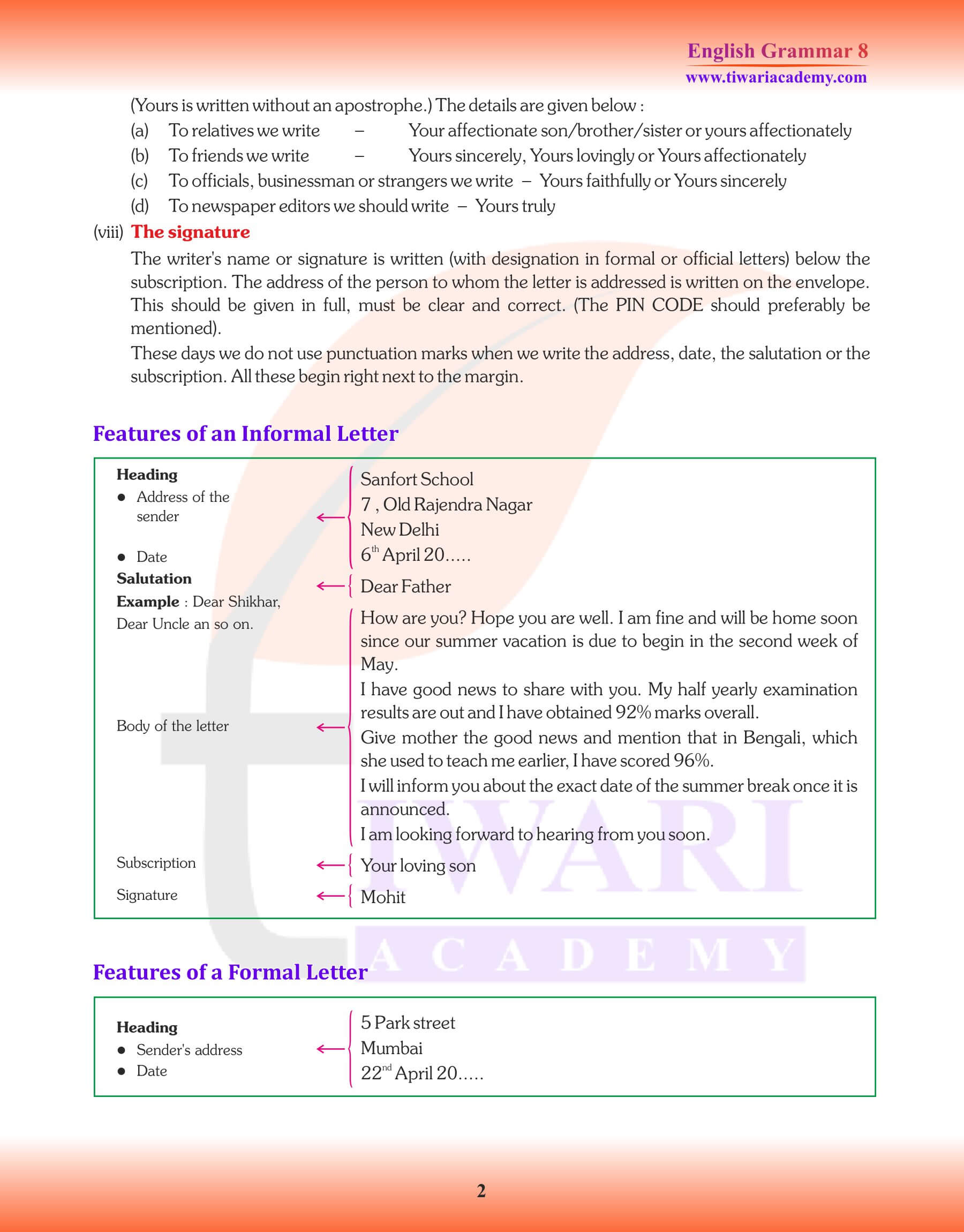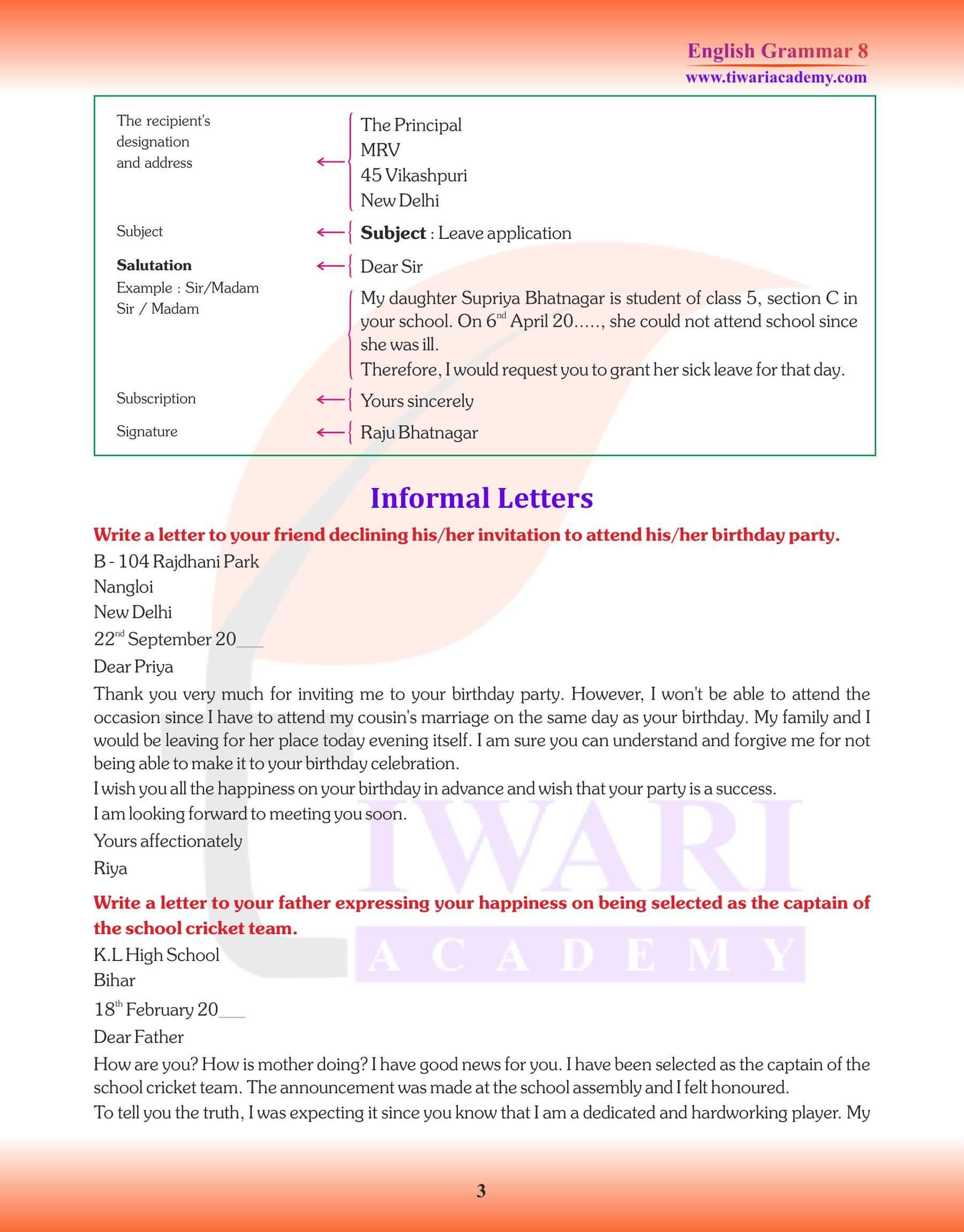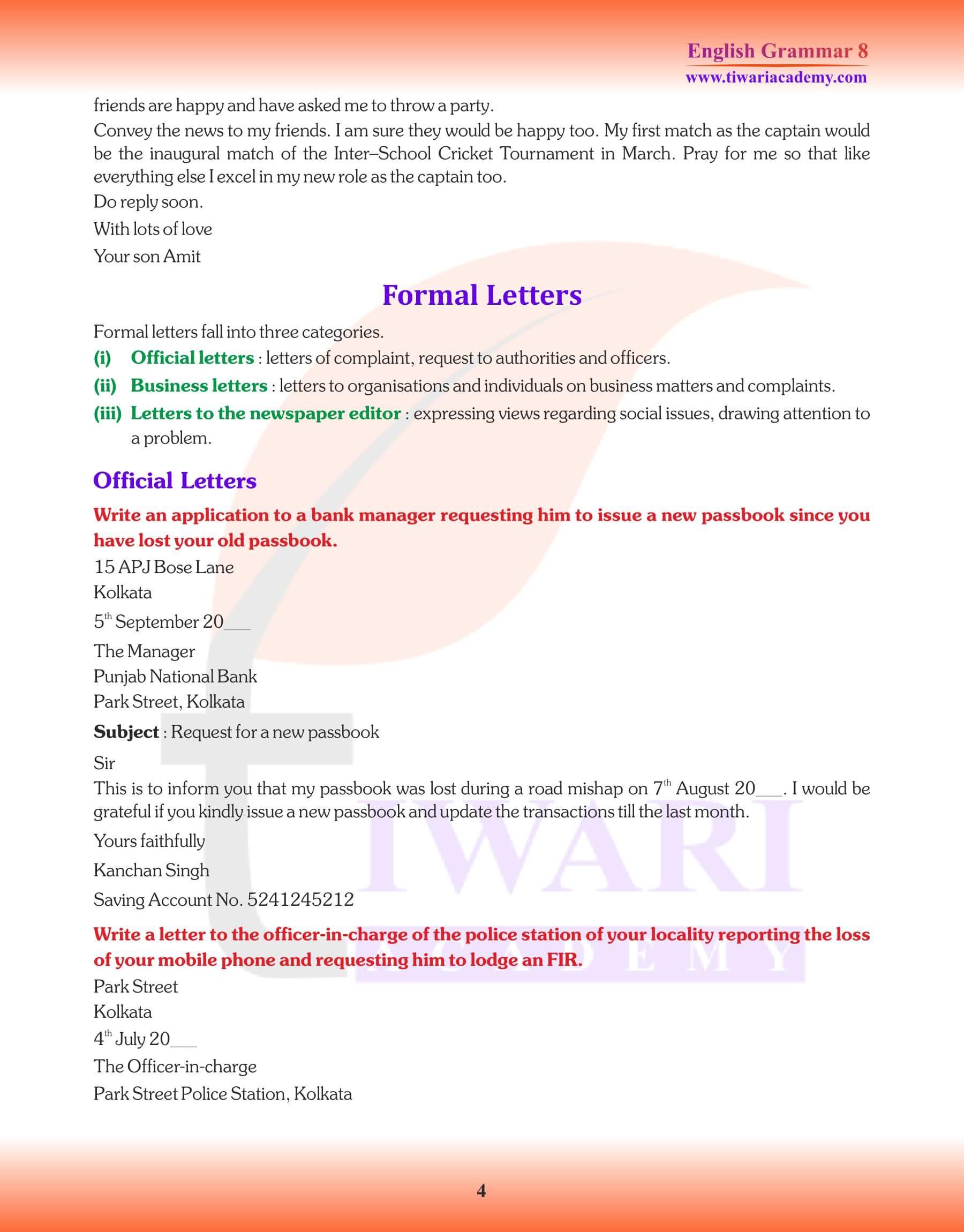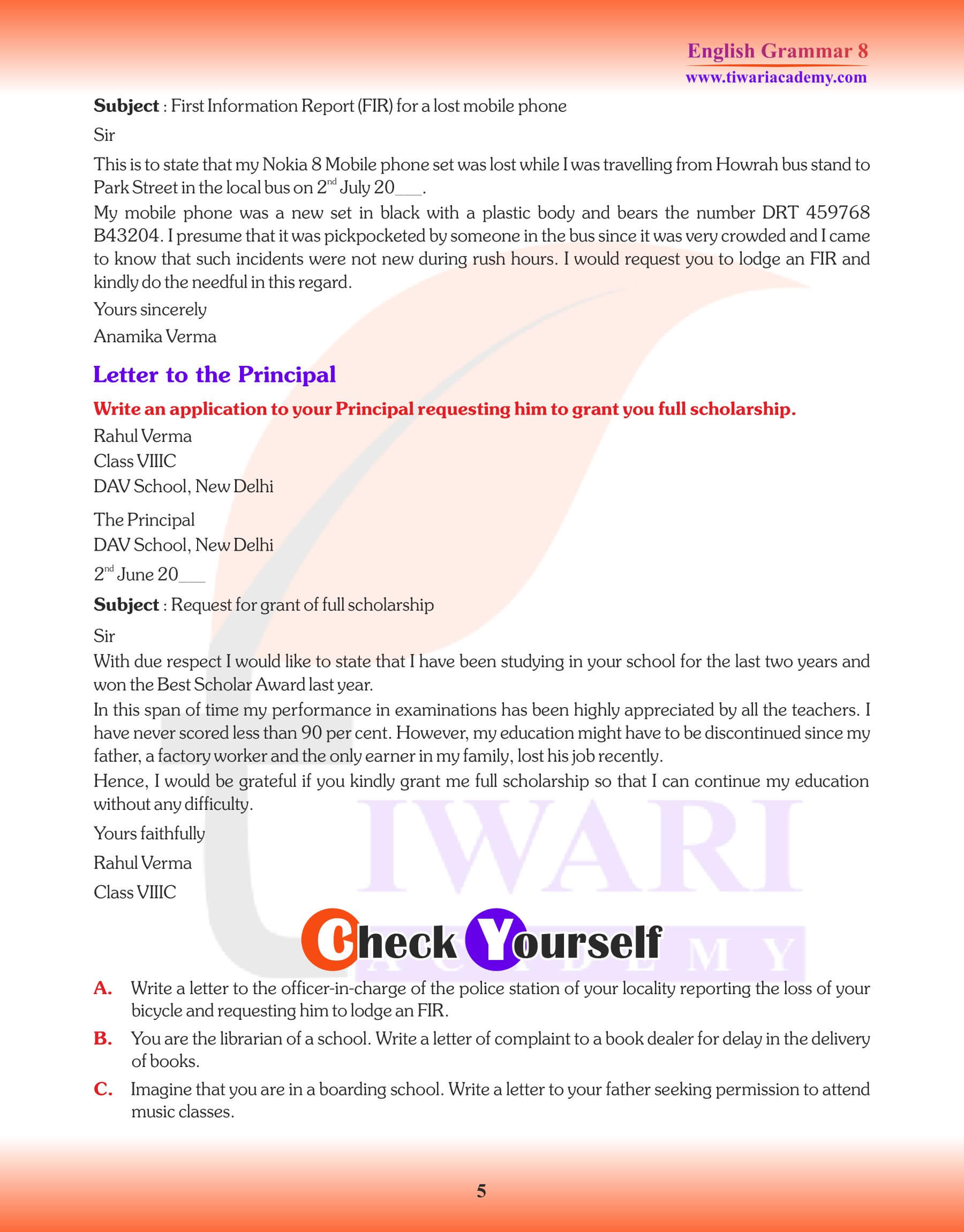Class 8 English Grammar Chapter 19 Letter Writing. Letters may be written for various purposes and in various ways. But of whatever kind the letter may be, there are certain rules that must be observed in each case. There are ordinarily three kinds of letters. For example, Social Letters, including Friendly Letters to friends, relations, acquaintances and Notes of Invitations. Business Letters, Official Letters, including letters to teachers, editors of news papers and applications for posts.
The timeless tradition of letter writing remains an integral part of our communication landscape, even in an era dominated by emails and instant messaging. Chapter 19 in Class 8 English Grammar, as presented in leading educational resources such as Tiwari Academy, delves into this quintessential skill, laying down the intricacies involved in composing a well-crafted letter.
Letter writing isn’t merely about penning down words. It’s about conveying sentiments, sharing information, or making requests in a structured and clear manner. Depending on its purpose and recipient, the tone, content, and format of a letter can vary significantly.
| Class: 8 | English Grammar |
| Chapter: 19 | Letter Writing |
| Session: | 2024-25 |
| Study Material: | Grammar Textbook and Revision Notes |
Parts of a Letter
Every letter consists of the following six parts:
- (a) The Writer’s Address and the Date .
- (b) The Salutation or Form of Greeting.
- (c) The Body of the Letter .
- (d) The Subscription or the Ending.
- (e) The Writer’s Name
- (f) The Superscription or Address on the envelope.
Here are the key types of letters covered in this chapter:
- Social Letters: Encompassing friendly letters, these are often penned to friends, family, or acquaintances. They are characterized by their personal tone, where emotions and information are seamlessly woven together. Additionally, this category also includes Notes of Invitations, which are concise messages inviting someone for events or gatherings.
- Business Letters: These letters stand at the intersection of professionalism and clarity. Typically addressed to companies or professionals, they are written with a specific objective, whether it’s an inquiry, a proposal, or feedback. The tone is formal, and the content is straight to the point.
- Official Letters: This category includes a diverse range of letters, from writing to a teacher about a concern, pitching an idea to a newspaper editor, or applying for a job. Precision is key in official letters, as is the adherence to a formal tone and structure.
Form of Greeting
The salutation varies a great deal; there is no rule on the subject as it depends entirely on the degree of intimacy between the writer and the person written to.
To members of the family, it will be: My dear Uncle, My dear Sister, etc.
To friends, it will be: My dear Ram, Dear Mr. Shyam or Dear Friend, etc.
The Body. This is the main part of the letter. It. should be written in simple and clear language. It is important to divide it into two or three paragraphs. Each paragraph ought to deal with one or more specific points which are related to each other. Place the first word of the message under the second word of the salutation and begin it with a capital letter.
The Complementary Closing
It should indicate respect, affection or whatever the writer desires to express. If it is penned carelessly, it might offend the person to whom the letter is addressed. So certain forms of leave-taking are prescribed. The following forms indicate the increasing degrees of intimacy.
(a) Yours very truly; (b) Yours very sincerely; (c) Yours sincerely; (d) Sincerely Yours ; (e) Yours affectionately; (f) Affectionately yours; (g) Yours lovingly ; (h) Ever Yours.
The Name: This must come below the subscription and more to the right as Yours very sincerely.
Mr. ABC
The significance of mastering letter writing extends beyond just academic achievements. In real-world scenarios, be it applying for a job, addressing a concern, or simply reconnecting with a friend, a well-written letter can make all the difference. Tiwari Academy and similar platforms emphasize the importance of this skill, equipping students not just for examinations but for life’s myriad situations.
In essence, Chapter 19 is a comprehensive guide to the diverse world of letter writing, offering students a robust foundation in crafting effective and impactful letters.
The Signature
The Signature should be clearly and fully written so that the receiver may know to whom he is to reply. It is advisable to sign ones full name or to insert it in block letters at the top left hand corner.
Forms of Salutation and Subscription to parents, Brothers, Sisters, Relations
| Begin | End |
|---|---|
| My dear Mother, | Your loving son, or Your affectionate son, |
| My dear cousin, | Yours affectionately, |
| My dear Brother, | Your loving brother, Your loving sister, |
| My dear Father, | Your loving son, |
| My dear Suresh | Yours affectionately. |
| My dear Uncle or Aunt, | Your affectionate nephew or niece, |
How to Begin a Letter
Special forms of salutations used in writing to different classes of people have already been given. A general statement is given below:
- Sir (Madam) is used for persons of higher rank, for strangers and in formal letters.
- Dear Sir (Madam) is used for persons of equal rank, for strangers and in all business correspondence.
- Dear Sir, Dear Mr. Chauhan, Dear Mrs Chauhan, Dear Miss Sonam is used for business correspondence.
- All the above are correct when the writer is fairly intimate with the person receiving a letter.
- My dear Mr Dev is more familiar.
- Dear Dagar is the usual salutation between intimate male friends.
- My dear Dev should be used between two very intimate male friends.
- My darling Dev, My dearest John are the correct salutations for special cases of affection.
- Dear Father, My dear Cousin etc. are all intimate forms within the family.
- My dear Sir is used when both parties know each other well and are on friendly terms .
- When writing to ladies, the most formal form is Madam. Less formal, friendly and intimate forms are in the following order: Dear Urmil, Dear Mrs. Santosh, My dear Miss Parul, My dearest Sapna,
How to Close Letters
- (a) Yours faithfully is a safe ending for all business and official letters. It conveys a shade of friendliness and is used after Dear sir.
- (b) Yours truly is the most common and least intimate ending and is correct for business letters and letters to strangers.
- (c) Yours very truly, Yours very faithfully are more cordial endings.
- (d) Yours sincerely is a safe ending for most friendly letters.
- (e) Yours very sincerely, Yours most truly, Yours most faithfully, and Yours most sincerely show that the writer wants to be very cordial.
- (f) Yours affectionately is suitable for relations, would be relations and between girl friends.
- (g) Faithfully yours, Truly yours, Yours sincerely, Affectionately yours are a matter of taste and show a greater degree of intimacy than (1), (2), (4) and (6) respectively.
Useful Phrases and Sentences
The following phrases and sentences are used to begin Private Letters:
- Your kind note is to hand this morning.
- I am sorry I could not write to you earlier.
- I am glad to receive your letter.
- I could not help smiling as I read your letter.
- I was delighted to go through the contents of your letter .
- I am in receipt of your letter of the 14 th instant.
- It is a long time since I wrote you.
- This is merely to inform you …
- I am realy very sorry not to have heard from you for such a long time.
- I am grieved to learn …
- It gives me great pain to learn …
- My heart goes out in sympathy for you in this bereavement.
- You will be very sorry to hear that …
- I heard incidentally that you were …
Closing Phrases according to the sense
- With kind regards,
- With love and best wishes,
- Anxiously awaiting your favourable reply,
- Hoping to have better news of your health,
- Hoping you will soon be quite well again,
- Thanking you for many favours,
- Please remember me to your father,
- With love to dear mother and yourself
- With sincere thanks for your kind invitation,
- Thanking you in anticipation,
- Believe me, my dear (friend),
- With best compliments to the elders and love to the children,
- With best wishes to all at home,
- I shall be very glad to hear from you from time to time,
- Do write and say how you are getting on.
